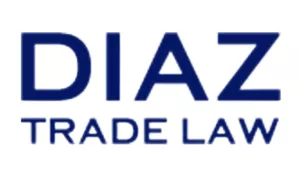On November 7, 2025, the Office of Foreign Assets Control (OFAC), alongside the U.S. Department of State and the U.S. Department of Commerce, issued a Tri-Seal Advisory:Sanctions and Export Controls Relief for Syria.
The Advisory follows President Trump'sExecutive Orderon June 30, 2025, formallyremoving U.S. sanctions on Syriaand directing agencies to take additional measures to encourage U.S. private sector and foreign partner reengagement in Syria.
New Opportunities & Remaining Restrictions
The Advisory outlines what business with Syria is now permissible as well as what restrictions remain.
Permissible Business:
- The United States no longer imposes comprehensive sanctions on Syria.
- The Caesar Act is suspended, except for sanctionable transactions with Russia and Iran.
- The transfer of most basic civilian use U.S.-origin goods, as well as software and technology, to or within Syria is permitted without a license.
Remaining Restrictions:
- Sanctions remain on "the worst of the worst:" Bashar al-Assad and his associates, human rights abusers, drug traffickers, and other destabilizing regional actors.
- The U.S. Government continues to review Syria's State Sponsor of Terrorism (SST) designation.
- Most Commerce Control List items going to Syria still require a U.S. export license.
What Exporters Should Do
The removal of Syria sanctions and the easing of export-control requirements open up new opportunities for exporters who have avoided the market to comply with U.S. law. However, exporters should proceed with caution and ensure they conduct thorough due diligence before engaging in any business in Syria.
While sanctions have largely been lifted, certain sanctions remainin effect for individuals and entities related to Bashar al-Assad and his affiliates. Exporters should also be mindful of the historic links between Syrian entities and Iran. Due diligence should address potential sanctions issues with indirect relationships with Iran or Iranian entities.
Before conducting business with Syria, exporters should consult legal counsel to ensure proper due diligence is conducted. Violations of export control laws carry hefty civil and criminal penalties. Exporters can face steep penalties, lose their export privileges, and even be imprisoned for violating U.S. export control laws.
A key foundation of proactive and effective export compliance requires the development of anexport compliance plan, which establishes procedures for your organization, including how to identify violations and what to do when violations occur.
The content of this article is intended to provide a general guide to the subject matter. Specialist advice should be sought about your specific circumstances.


